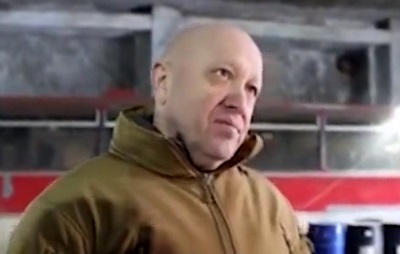Moscow, (Samajweekly) For the first time since the failed Wagner rebellion last month, the Russian state TV has embarked on an apparent campaign to discredit the mercenary group’s chief Yevgeny Prigozhin by showing personal and damaging details.
Before the rebellion on June 24, Russian TV had portrayed a positive image of the Wagner mercenary group, which has fought alongside the Russian military during its invasion of Ukraine, the BBC reported.
But from July 1-5, the country’s state-run network Rossiya showed images taken during searches at his opulent home outside St Petersburg, arguing that his riches reflected very badly on him.
“Let’s have a look how this fighter for the truth lived, someone who has two criminal convictions and who kept claiming that everyone else was a thief,” the BBC quoted a commentator on ’60 Minutes’, a Rossiya talk show, as saying.
“Let’s have a look at the palace built for this campaigner against corruption and crime,” the commentator added.
The footage showed piles of cash, various weapons, the house’s opulent interiors and vast gardens complete with a parked helicopter, an assortment of wigs and apparently fake passports issued to the Wagner chief in different names.
Later, similar footage was shown as part of Rossiya’s main evening news bulletin, which featured ingots of gold and “suspicious packets of white powder”.
It also dwelt at length on Prigozhin’s criminal past.
He received his first criminal conviction in 1979, aged just 18, and got a suspended two-and-a-half year sentence for theft.
Two years later, he was sentenced to 13 years in jail for robbery and theft, nine of which he served behind bars, the BBC reported.
“They say that it is the experience and connections he received from crime lords behind bars which helped him walk the path from a hot dog seller to an authoritative master of cauldrons and pans,” Rossiya 1’s correspondent said referring to Prigozhin’s past role as a caterer for the Kremlin.
This role also earned him the nickname “Kremlin’s chef”.
While the state TV’s Channel One suggested that Prigozhin was linked to Western intelligence, NTV, one of Russia’s three most-watched television stations, argued that he was driven by greed and criminal past.








